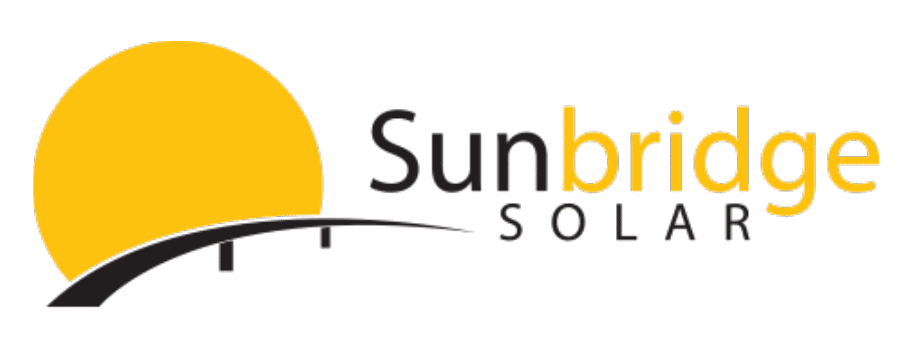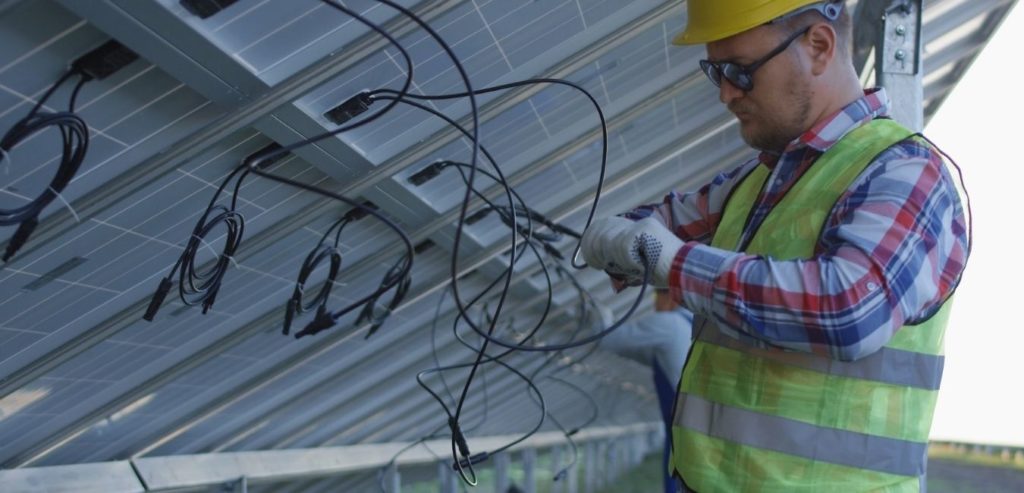Are Solar Panels Safe?
Solar energy is a clean and renewable energy source available to homeowners across the country. According to Globe Newswire, in 2021, solar energy will account for 39% of new electricity generated in the United States.
Collecting light from the sun, solar panels then convert light into energy to power your home. An average-sized home with solar panels can produce enough energy to power the needs of the house, including all-electric appliances and technology devices.
But is it safe?
Solar Panels Are Overwhelmingly Safe
The Earth uses the sun’s energy to produce and sustain planets and lifeforms. So why not use this same energy to provide power to your home? The actual energy from solar panels is extremely safe, clean, and renewable.
Homeowners can use solar power to generate electricity throughout the home or store the energy in batteries or thermal storage for later use. Not only are the solar panels on your roof safe to use, the batteries and storage units are also overwhelmingly safe.
Solar panels themselves are made of several individual solar cells containing silicon and metal layers that light particles pass through to transfer into electrical energy. These solar cells are not new technology but have new developments and innovations nearly every year. For example, recently, researchers have created an ultrathin solar cell so small that it can fit on top of a soap bubble.
But these small solar cells are not what is going on your roof. Instead, solar installers will attach panels that are typically 65”x39”, although some sizes may vary depending on the manufacturer.
Common Solar Panel Issues
Whether you want your home to be off the power grid or more energy efficient, solar panels are a great solution. They are low maintenance, and homeowners can save money with significantly lower electricity bills. However, there are often issues that can occur with solar panels.
Similar to other common electrical appliances such as microwaves, refrigerators, lights, or toasters, solar panels may occasionally have problems, including corrosion, faulty wiring, or micro-cracks.
Two very common solar panel issues are electrical surges and solar panel fires.
Electrical Surges
A surge happens when there is a brief spike or disturbance in the electrical current. For example, when solar panels have an electrical surge, it can damage the solar cells and panels. The duration and voltage of the surge determine the damage caused by the surge.
Electrical surges are caused by factors outside the home, such as lightning strikes or regional power changes, and inside the home, such as faulty wiring. Most internal power surges are preventable by keeping your home’s electrical system up-to-date.
There are solar power system surge protectors available to protect your home from the effects of electrical surges. Similar to a surge protector on a computer or TV, a solar surge protector device (or SPD) protects the solar cells and panels from damage.
Solar Panel Fires
Electrical problems can also cause solar panel fires, although this is a relatively small hazard. According to Photon magazine, there is one fire reported per 10,000 installations. Solar panel fires usually start at the system’s combiner box, where wires from all the solar panels connect. A fire can start if there is faulty wiring, poor insulation, or bad installation. Homeowners will only want to contract professional and qualified solar installers.
How Are Solar Panels Safe?
As solar panels become more popular with homeowners, solar companies work to keep the equipment and technology safe. To ensure solar panels are safe, solar companies currently implement new rapid shutdown requirements and solar panel grounding. These methods are standard practice, and along with surge protector devices, keep the solar panels and your home safe from damage.
New Rapid Shutdown Requirements
The National Electrical Code, according to the National Fire Protection Association (or NFPA), requires all rooftop solar power systems to have a rapid shutdown procedure. Automatic shutdowns are triggered when the AC current does not flow to inverters, which usually means that something is not working correctly. The solar panels will shut down automatically and rapidly to protect your home and electricity system from damage.
Solar panels can automatically shut down to also prevent harm to your family or first responders during a house fire. Simply turning off the inverter doesn’t stop electricity from powering your home, which can cause havoc during a fire. A rapid shutdown lowers the level of electricity in your home in under a minute and gives first responders time to act quickly in their rescue and relief efforts.
Solar Panel Grounding
During solar panel installation, solar companies will “ground” the panels. Solar panel grounding connects the solar electricity systems to the earth to divert excess and dangerous currents to the ground (instead of your home).
Some states require whole-house SPDs (surge protector devices), which are installed in the electrical box and will divert current through a grounding path. Homeowners who live in a state with many storms (such as Florida) may want to invest in a whole-house SPD. Otherwise, the standard 200 amp panel is sufficient.
Installing Solar Panels on My Home
Solar panels can be a great addition to any home because they reduce electricity bills and increase home values. Homeowners will also benefit from a federal tax credit when installing solar panels. And many times after 20 years, the installation cost of solar pays for itself.
The cost of solar panels is determined by several factors, including your state, home size, and solar company. Currently, solar panels cost an average of $12,000 after the federal tax credit. However, homeowners that don’t use a lot of electricity can also save money with local utility net metering, essentially selling back to the utility company any energy your solar panels produce that you consume.
Get Started With a Consultation
It’s best to research and get several quotes of solar prices before deciding on a solar power company. You can ask questions about surge protector devices, rapid shutdowns, and roof requirements before installation. You will want to work with qualified and professional solar installers to power your home fully.


